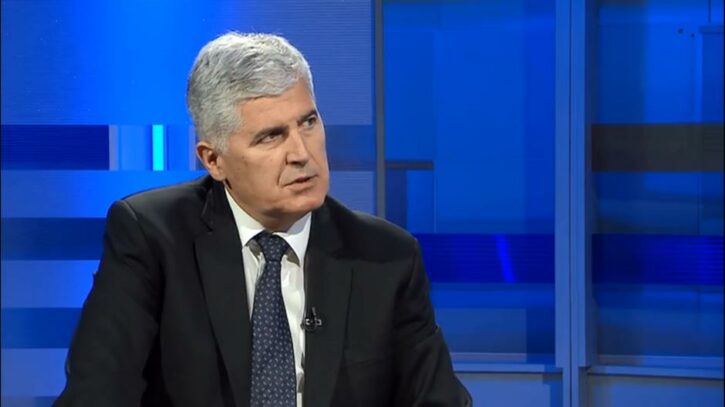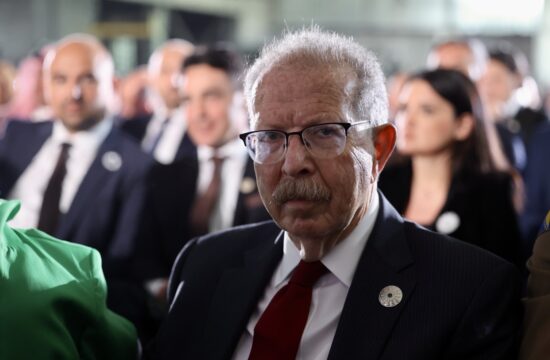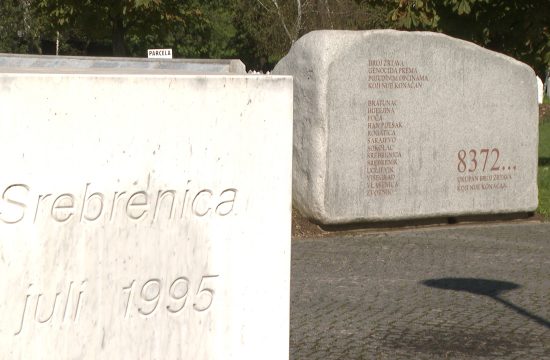
The authorities will not be formed as long as electoral legislation is not changed, and this does not mean a blockade but an initiative for Bosnia and Herzegovina, said Dragan Covic, a Croat candidate who was defeated in the run for Bosnia's state Presidency in the October 7 general election.
According to Covic, the Election Law changes is “a matter of all matters” both for his Croat Democratic Union (HDZ BiH) and for the country.
“Of course we will be adjusting to the needs of the political moment in Bosnia and Herzegovina, we must not halt anything nor this is some kind of blockade, this is an initiative for Bosnia and Herzegovina,” he stressed.
Despite the loss in the run for the Presidency, Covic's HDZ BiH entered parliaments at all levels and won a significant number of mandates and, depending on the coalitions that are yet to be formed, it might play a significant role in the decision making processes.
Covic strongly objected the candidacy and later the victory of his opponent, social-democrat Zeljko Komsic, claiming that his election was “both illegal and illegitimate.” According to him, Komsic was elected thanks to the votes of the Bosniaks, one of the two dominant ethnic groups in Bosnia's Federation (FBiH) entity, who along with the Croats elect two members of the Presidency. The third member is elected in Bosnia's Serb-dominated entity, Republika Srpska (RS).
HDZ BiH leader said Komsic was “a small marionette and a small tool” in the hands of the others.
“It would be unfair if I said something bad today against anyone even Komsic, that's not my style. He is here today, at the place that doesn't belong to him, he is neither legal nor legitimate,” he told the Radio Television of RS (RTRS), a public broadcaster in this entity.
Covic was advocating the Election Law changes prior to the latest election cycle, which, as he was saying, would secure that one people would not elect representatives to other peoples in Bosnia.
The Election Law proposal that the HDZ BiH presented and which was rejected in the state parliament stipulated the formation of ad hoc constituencies in FBiH entity, where the Presidency members would be elected directly, but candidates’ victory would be determined by the number of won votes and dominance of people in the given constituencies. In this way, a Croat candidate could be elected only if it won the majority of votes in the constituency dominated by Croats and the third, neutral constituency. If this condition is not met, the winner would be the next candidate in the line meeting these criteria and having the largest number of votes. The same would apply for Bosniak candidates.
Bosnia and Herzegovina, which consists of two entities and whose Constitution recognises three constituent ethnic groups – the Bosniaks, the Croats and the Serbs – has a tripartite Presidency, where each of these three groups is represented. The Election Law said the Bosniak and the Croat members are elected in Federation, while the voters in Republika Srpska would elect the Serb member.
It was crucial to protect the position of the Croats as a constituent and equal people in the country, Covic said.
As for possible coalitions in the post-election period, he said the HDZ BiH would enter a partnership with those with whom it could create the future and a clear position of the Croats.
On Monday, Covic met Milorad Dodik, the Serb leader and the candidate who entered the Presidency, to discuss the plans for a coalition. The two politicians had announced the coalition plans back in May this year when they also announced they would run for the Presidency.



